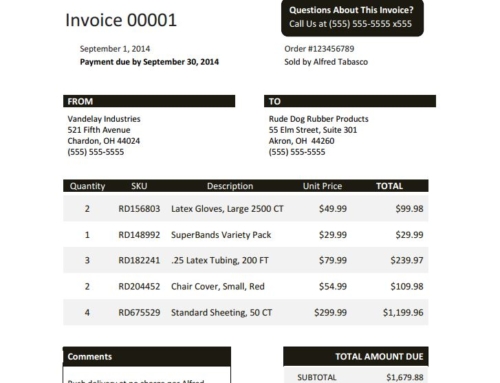Pay-If-Paid clauses tend to be a contractual issue specifically affecting businesses in the construction industry. It is rare to see them elsewhere, simply because this is almost one of the only industries where a product is worked on by many different people subcontracted out. A pay-if-paid clause can affect everyone downstream of a contract, stating that the customer is only obligated to pay you if they were paid first by their customer. This can have a huge impact on your cash flow, and steps should be taken to avoid these clauses all together. Below we’ve highlighted some ways to reduce the risk of pay-if-paid clauses.
The only way you can reduce the risk of pay-if-paid clauses to check and make sure they are not in your contract. If you don’t thoroughly read your payment terms, you may get blindsided by a clause that simply states you assume the risk of not getting paid at all. You are allowed to strike out contractual lines or modify statements before signing. The easiest way to reduce your risk is by eliminating this clause altogether when you sign a contract.
Although a pay-if-paid clause in your customer’s contracts doesn’t directly have an effect on your getting paid, it can have an effect on how quickly a customer pays you. If one of your customers is struggling to get paid by their customers due to pay-if-paid clauses, they may have cash flow issues and hold off on paying you. This will have a negative effect on your cash flow and your accounts receivable. It’s best to try and stay away from customers that regularly deal with pay-if-paid payment terms.
There is a huge difference between pay-if-paid and pay-when-paid and it can ultimately make a difference if you get paid late or not paid at all. Pay-if-paid simply states that your customer will not pay you until they have received payment from their customer. A pay-when-paid clause states that they will pay you as soon as they have received payment. A late payment is better than nothing at all. If you scan your contract, try making this small modification to reduce your risk.
In a survey by STS on construction in 2017, 29 percent of respondents states that pay-if-paid clauses are one of their top three concerns to getting paid on time. Reducing the risk of pay-if-paid clauses gets rid of one of those concerns and helps improve accounts receivable. It all comes down to negotiating payment terms and refusing to accept a contract with pay-if-paid clauses. It may be a little hard work but it could make the difference in getting paid for your work.




